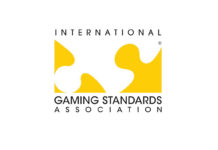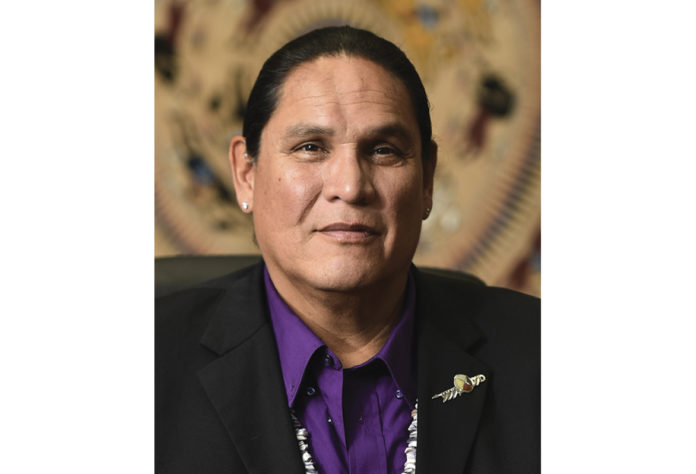by Ernest L. Stevens, Jr.
As many from the Indian gaming industry prepare to descend on Las Vegas to participate in the Global Gaming Expo, we plan to celebrate yet another year of record growth for the industry while also keeping a sharp focus on the significant challenges ahead.
Through our work with the American Gaming Association, we expect a robust crowd of tribal leaders and Indian gaming experts to attend the wide range of educational sessions that will take place during G2E 2024. Topics for discussion will of course include the continued emergence of sports betting, the need to improve cybersecurity and enhanced regulatory tools to protect Indian gaming revenues, and economic diversification beyond Indian gaming.
On the topic of sports betting, tribal governments continue to tread lightly on a tribe-by-tribe, state-by-state basis. In 2024, we’ve seen dozens more Indian gaming operations enter this emerging market.
Probably the most significant change in Indian gaming policy this year was the Interior Department’s promulgation of regulations to update its Part 293 “Class III Tribal-State Gaming Compact” regulations. This was the first update to these regulations since 2008. Interior’s final rule provides clarity and certainty to the compacting process by codifying several decades of departmental policy developed through decision letters and federal case law.
The final rule acknowledges that Congress, through the Indian Gaming Regulatory Act (IGRA), set limits on what provisions would be up for negotiation in tribal-state gaming compacts. The rule notes that permissible compact provisions include those “that are directly related to, and necessary for, the licensing and regulation of gaming activity” and provisions “directly related to the operation of gaming activities,” closing the door on attempts to use the compact negotiation process to address non-gaming matters.
Another aspect of the tribal-state compact process that the regulations sought to address was the longstanding impacts of the Supreme Court’s 1996 ruling in Seminole Tribe v. Florida. That case broke the careful balance in the tribal-state compacting process that Congress established through IGRA. Noting congressional intent, the background to the final rule notes that IGRA expressly prohibits a state’s imposition of a tax, fee, or other assessment on tribal governments. No government in the U.S. is permitted to directly impose a tax on another government. IGRA does, however, permit states to negotiate for the reimbursement of the costs of regulating a tribe’s Class III gaming activity. The rule acknowledges that compacts may include “revenue sharing in exchange for a state’s meaningful concessions resulting in a substantial economic benefit for the tribe.”
The final rule also addresses the growth in internet and mobile gaming that has continued in the wake of the Supreme Court’s 2018 Murphy decision, which struck down the federal prohibition against sports betting. Since 2018, dozens of tribal governments have added sports betting as an offering at their brick-and-mortar operations. The progress of Indian gaming regarding internet sports betting has been mixed, with some tribes working through the compacting process to implement geofenced mobile gaming and others participating in state-run models outside of IGRA.
Congress did not intend IGRA to serve as an impediment to tribal government participation in new gaming markets or emerging technical innovation. The Act did not freeze tribal gaming in place in 1988. Instead, the Act provides a regulatory framework for Indian gaming – permitting tribes to work with state governments through the compacting process to address emerging markets for purposes of Class III Indian gaming.
The Interior Department’s final rule acknowledges these facts and makes clear that compacts may include provisions allocating state and tribal jurisdiction that deem remote wagers to take place at the location of the server accepting the wager that is located on the tribe’s Indian lands where this arrangement is acknowledged in either state law or the compact.
Another important session at G2E this year will place a spotlight on the tribal leaders who will lead our industry for generations to come. Many tribal governments have elected young leaders who are bringing innovative ideas and new strategies to our industry and to the crucial work that all tribes do to foster and protect tribal sovereignty.
The state of the Indian gaming industry is strong and growing stronger. But we cannot rest. We know more must be done to improve opportunities for Indian Country, and much of that work starts with ensuring that we elect decision-makers at all levels of government who understand and support tribal sovereignty.
G2E 2024 takes place less than a month from the November 5, 2024 election, so I am certain that there will be discussions of the importance of the Native vote during the conference. The Indian Gaming Association is partnering with our Member Tribes and sister organizations to educate, empower, and encourage all of Indian Country to register and commit to making a plan to vote. There are stops planned throughout Indian Country to support this initiative.
We know that Native youth are the key to unlocking the full potential of our vote. We are recruiting young men and women warriors to serve as ambassadors to organize their communities and educate everyone about the importance of their vote. Exercising our voting rights empowers our people and advances our future. Importantly, it also serves to honor the sacrifices of our ancestors who fought to protect tribal sovereignty and our way of life.
Our power at the polls will determine whose voices will guide Congress for the next two years. Indian Country’s vote will count. We can, and we will, make a difference. So as we gather to celebrate our industry at the Global Gaming Expo, we will do so with a fierce focus on our communities and the continued right of tribal governments to protect Native families, our ability to promote tribal government economic development, and our very way of life.
Ernest L. Stevens, Jr. is Chairman of the Indian Gaming Association. He can be reached by calling (202) 546-7711 or visit www.indiangaming.org.
















































